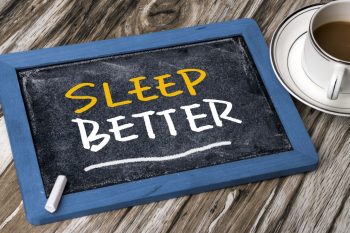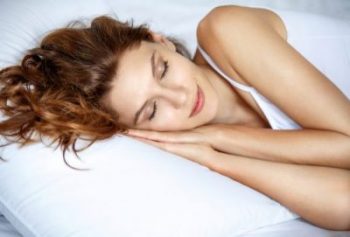
BEAUTY SLEEP IS REAL

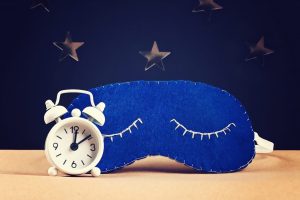
![]() HOW A GOOD NIGHT’S REST CAN HELP YOUR APPEARANCE
HOW A GOOD NIGHT’S REST CAN HELP YOUR APPEARANCE
One of the best tools for healthy, youthful skin can’t be found in a jar. Here’s why sleep is one of the best things you can do for your look. When you think about all the things that affect your skin, sleep isn’t usually the first thing to come to mind. You may have heard that quality sleep is essential for our overall well-being, but did you know that it’s also a big factor that impacts our appearance?
It’s not always easy for us to get those recommended seven to nine hours of beauty sleep. Inadequate sleep not only impacts your mental and physical health, but even your physical features like hair, eyes, and skin. So, what does poor sleep do to your appearance and health?
Here’s what we know.
![]() THE SCIENCE BEHIND BEAUTY SLEEP
THE SCIENCE BEHIND BEAUTY SLEEP
When you sleep, your body enters recovery mode, and each stage of sleep is crucial to skin recovery.
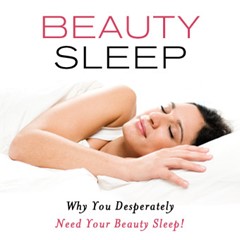
During varying stages of sleep, the body produces multiple hormones including human growth hormone, melatonin, and cortisol. These hormones play critical roles in recovery including repairing skin from daily damage, keeping our skin looking youthful and protecting your skin from free radicals that can cause damage to cells. When sleeping, every hour counts.
![]() WHY POOR SLEEP HARMS YOUR APPEARANCE
WHY POOR SLEEP HARMS YOUR APPEARANCE
A study found that lack of sleep has the potential to negatively affect your facial appearance and may decrease others’ willingness to socialize with the sleep-deprived person.
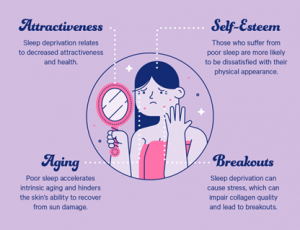
Here’s how not getting enough shut eye affects your appearance:
![]() Skin: You know, bags under the eyes and all that jazz. Not only does poor sleep affect your skin, but also its normal functions like collage production. Excess cortisol due to the stress of sleep deprivation is a common cause of acne.
Skin: You know, bags under the eyes and all that jazz. Not only does poor sleep affect your skin, but also its normal functions like collage production. Excess cortisol due to the stress of sleep deprivation is a common cause of acne.
![]() Hair: Lack of sleep also impacts your hair growth since collagen production is affected when we don’t get enough sleep, making your hair more prone to thinning or hair loss. Sleep deprivation can also cause stress on the body and increase cortisol, which can lead to hair loss.
Hair: Lack of sleep also impacts your hair growth since collagen production is affected when we don’t get enough sleep, making your hair more prone to thinning or hair loss. Sleep deprivation can also cause stress on the body and increase cortisol, which can lead to hair loss.
![]() Eyes: Just one night of poor sleep is enough to cause dark circles under your eyes. Lack of sleep can cause the blood vessels around your eyes to dilate and create dark circles or puffiness. Depending on your natural skin tone, these dark circles may be visible as shades of blue, purple, black, or brown.
Eyes: Just one night of poor sleep is enough to cause dark circles under your eyes. Lack of sleep can cause the blood vessels around your eyes to dilate and create dark circles or puffiness. Depending on your natural skin tone, these dark circles may be visible as shades of blue, purple, black, or brown.
![]() LACK OF SLEEP AFFECTS THE BODY AND MIND
LACK OF SLEEP AFFECTS THE BODY AND MIND
Sleep deprivation goes beyond affecting the way you look. Lack of sleep can also affect the way your body and mind work.
![]() Impact on the mind: Studies show that sleep deprivation can affect memory function and emotional stability, as well as impair decision-making skills. Poor sleep can hurt your performance at work, lead to mood swings and enhance emotions like anger and sadness.
Impact on the mind: Studies show that sleep deprivation can affect memory function and emotional stability, as well as impair decision-making skills. Poor sleep can hurt your performance at work, lead to mood swings and enhance emotions like anger and sadness.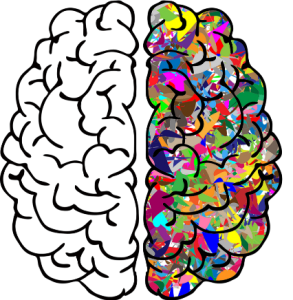
Data from a 2021 study found that people ages 50 through 60 who got 6 hours or less of sleep were at greater risk of developing dementia.
![]() Impact on the body: Prolonged deprivation can make you feel sluggish and fatigued, which means less energy to get you through the day.
Impact on the body: Prolonged deprivation can make you feel sluggish and fatigued, which means less energy to get you through the day.
 Other studies have linked lack of sleep to an increased risk of heart disease, stroke, diabetes, and high cholesterol due to the higher levels of cortisol.
Other studies have linked lack of sleep to an increased risk of heart disease, stroke, diabetes, and high cholesterol due to the higher levels of cortisol.
![]() The link between lack of sleep and weight gain:
The link between lack of sleep and weight gain:
In addition to how you look, how you sleep can also impact your weight. Sleep deprivation has been linked to weight gain and a higher risk of obesity in men and women. Similarly, people with severe sleep apnea tend to experience increased weight gain.
![]() READY TO CATCH UP ON SOME BEAUTY SLEEP?
READY TO CATCH UP ON SOME BEAUTY SLEEP?
Tips for sleeping better:
- As much as we love our morning cup of coffee, it’s best to avoid caffeine in the afternoon and late in the evening
- Avoid alcohol before bedtime. Alcohol contributes to poor sleep quality, leading to fatigue and daytime sleepiness
- Avoid strenuous exercise right before going to bed
- Set your technology aside an hour before going to sleep
- Get into a good routine that promotes sound sleep
![]() HOW TO BUILD A GOOD ROUTINE? HERE ARE FOUR STEPS TO TRY:
HOW TO BUILD A GOOD ROUTINE? HERE ARE FOUR STEPS TO TRY:
- Go to bed at approximately the same time each night.
- Wake up at approximately the same time every morning.
- Limit your naps to 30 minutes or less.
- Maintain a regular sleep schedule on weekends.
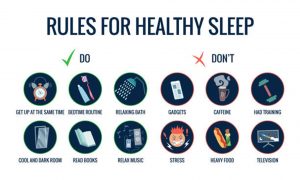

Contents per cnet.com




